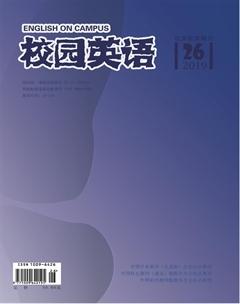An Analysis of the Land Ethic in?A Sand County Almanac
【Abstract】Aldo Leopold is a famous American environmentalist and pioneer of environmental protection, his book A Sand County Almanac is considered the Bible of environmentalism. Leopold comprehensively explained the Land Ethic in A Sand County Almanac, which was regarded by the academic circles as the first standard in the history of the West to put forward the relationship between man and nature from the perspective of morality. This paper analyzes the Land Ethic in A Sand County Almanac from the perspective of ecology, hoping to provide reference for contemporary people to correctly deal with the ecological relationship between human and nature.
【Key words】A Sand County Almanac; Land Ethic; Ecology
【作者簡介】郜聿页(1994.12-),女,汉族,江苏人,上海师范大学硕土研究生,研究方向:英语语言文学。
1. Historical Background
Leopold put forward the land ethics in A Sand County Almanac in 1949, but it has not been paid enough attention for a long time. After 1965, with the increasingly serious environmental and social problems, the core of American culture has changed. People begin to realize the ecological value of A Sand County Almanac and land ethics. The book was later called the Prophets Prophecy and the Bible in the field of environment, which reflech the important value and significance of A Sand County Almanac.
2. Land Ethic
Leopold cited many social facts in
A Sand County Almanac to criticize the destruction of natural ecology by human beings in the current society. He pointed out: “One year not long ago a French trapper in buckskins pushed his canoe up one of the moss-clogged creeks that threat the great marsh. At this attempt to invade their miry stronghold the cranes gave vent to loud and ribald laughter. A century or two later Englishmen came in covered wagons. They chopped clearings in the timbered moraines that border the marsh, and in them planted corn and buckwheat. (Leopold, 2018: 212)” These are the manifestations of anthropocentrism. Anthropocentrism is a negative environmental ethics, which embodies the environmental concept that human beings take themselves as the center and put their interests above everything else (Flader,1993: 17). For their own interests and preferences, people have made endless demands on and destruction of nature for a long time, affecting the ecological balance and harming the interests of human beings but do not know it.
While exploring the causes of ecological destruction, Leopold advocated the transformation from Anthropocentrism to ecocentrism. Ecocentrism holds that nature is the center of everything, and that human beings should live in harmony with nature. Leopold calls for a new understanding of ecology. We should have an ethical sense of responsibility for the natural environment in which we live in. Thus, Leopold put forward the theory of “land ethic” .
According to Leopold, a land ethic changes the role of Homo sapiens from conqueror of the land community to plain member and citizen of it. It implies respect for his fellow-members, and also respect for the community as such(Leopold, 2018: 221). People are regarded as a member of the land community, that is, a part of nature. Leopold regarded other members of nature, animals, plants as his friends and neighbors. He and his family enjoyed the air dance of the male crane punctually, fell in love with pine trees, and set up a tomb for pigeons. Through the definition of community, Leopold put human beings in the same community with nature, which broke the confinement of “anthropocentrism” and reinterpreted the concept of land ethic(Flader,1993: 18). This requires every member of the community, including human beings, to maintain the harmony, stability and beauty of the community.
3. Conclusion
Leopold advocates ecocentrism and puts forward land ethics, which has a standard that “when a thing helps to protect the harmony, stability and beauty of the biological community, it is right, and when it goes against it, it is wrong.”It was also from Leopold that American naturalistic writing started to get rid of the shackles of anthropocentrism and embarked on the road of real ecological philosophy.
References:
[1]Leopold.A Sand County Almanac. Western Literary Theories: A Bilingual Course to Develop Critical Thinking[M]. Lu Min ed. Wuhan: Wuhan University Press,2018,9:209-226.
[2]Flader, Susan.A Biographical Study of Aldo Leopold: Thinking Like A Mountain[J]. Forest History Newsletter.Oxford University Press.Volume17,No.1:14-18.

